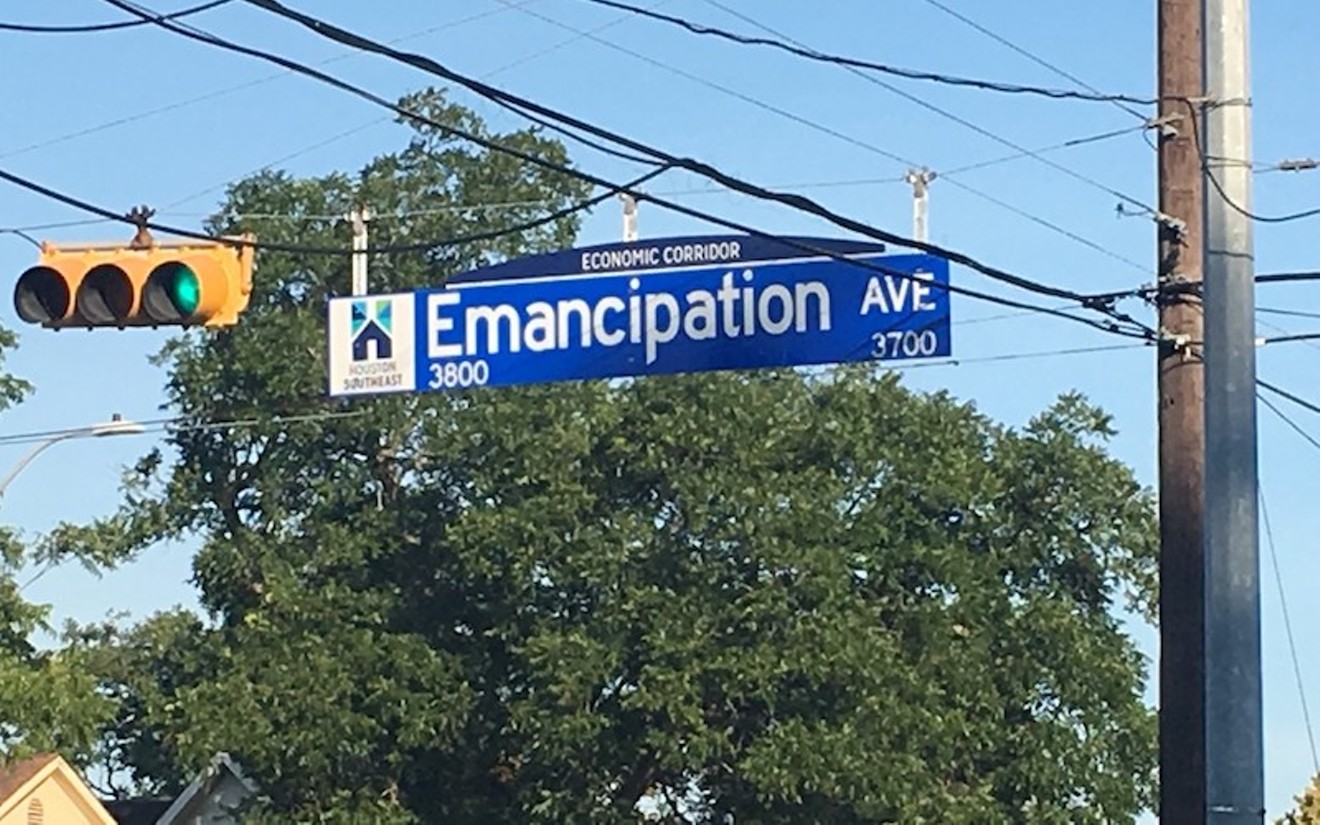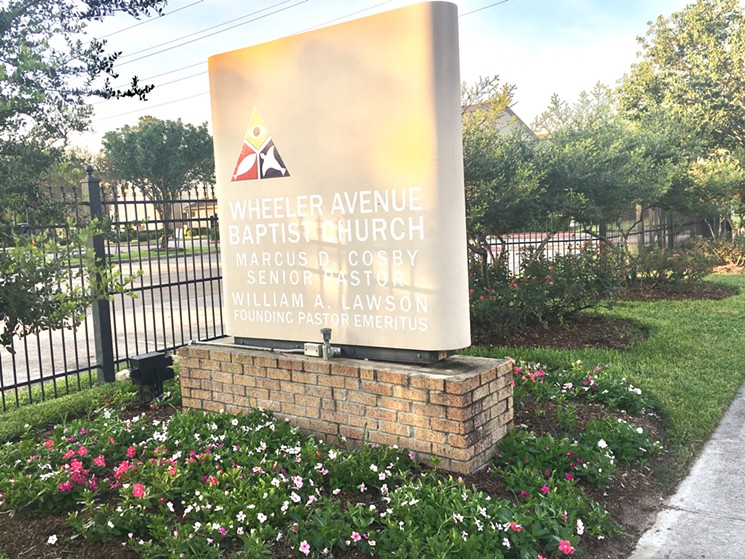That which once provided comfort and unity in the traditionally black neighborhood is now deteriorating — some residents say they feel helpless at the hands of the economic forces that have begun swooping in to “improve" the land. These so-called saviors are tearing down the very
Many residents invite the change, but quite a few others do not. “What do I do when the bus lines no longer are in walking distance from my home?" says one 31-year-old Cuney Homes resident, who asked not to be identified. "Because the first thing they do when they wanna clean it up
Located directly across the street from Texas Southern University, the Cuney Homes development houses roughly 595 residents, many of them
“They think that the ‘hood’ is for black folks,” says 69-year-old Third Ward Native Archie Holmes. “Take a look around. Look at all of these faces that are different from [mine].”
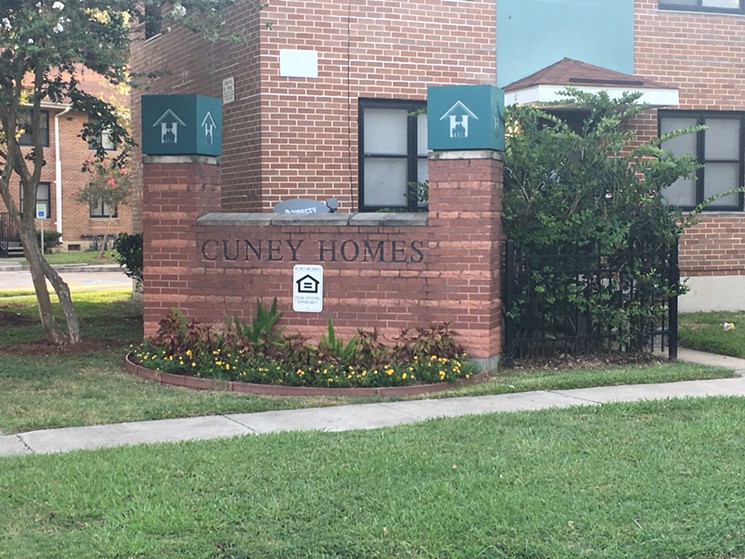
Cuney Homes housing development, located near the campuses of Texas Southern University and the University of Houston.
Photo by G. Paris Johnson
In fact, this mistrust that Mr. Holmes touched on is so rampant in Third Ward that the Houston Press had to convince those with whom we spoke that we weren't some sort of "official" infringing on their territory, or an undercover agent. They also declined to have their picture taken.
However, a recent article by the Houston Chronicle noted that "spurring economic development is among Third Ward officials' focus moving forward. They want to create entrepreneurs and small-business owners from the community to ensure residents aren't displaced by gentrification."
On the outskirts of the neighborhood, the intersection of Alabama Street and Emancipation Avenue now bears street signs labeling the area an "Economic Corridor." The new signs are part of a new initiative by the Emancipation Economic Development Council, a collective of community organizations that hopes to find a way for property developers, new buyers and longtime residents to work together.
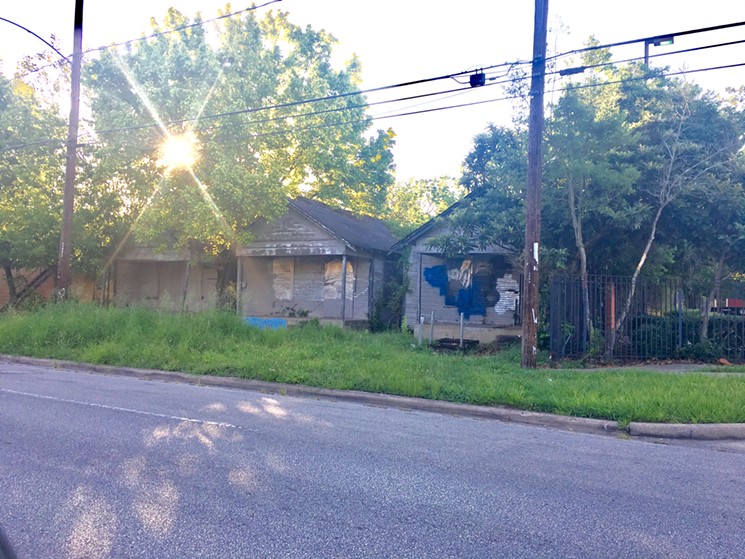
Three abandoned shotgun houses in Third Ward, property now known as prime real estate to investors.
Photo by G. Paris Johnson
Mahmood maintains her committee is actively looking at how to prevent the possible displacement of Third Ward's neighbors who cannot afford to live in their own homes as a result of gentrification. Many residents we talked to, though, say they still feel the words "Economic Corridor" mark the initial signal of a "phase-out," and it's only a matter of time before the heart of the Third Ward community, much like Midtown and the Museum District before it, is referred to with another name.
In other words, some people think it sounds nicer to live in the Economic Corridor than in Third Ward. Present-day residents of Midtown and the Museum District no longer have to associate themselves with living in a place that was once known as parts of Third Ward and the outskirts of Fourth Ward, because, stripped of their racial connotations, those neutral-sounding neighborhood names sound more appealing to non-black buyers.
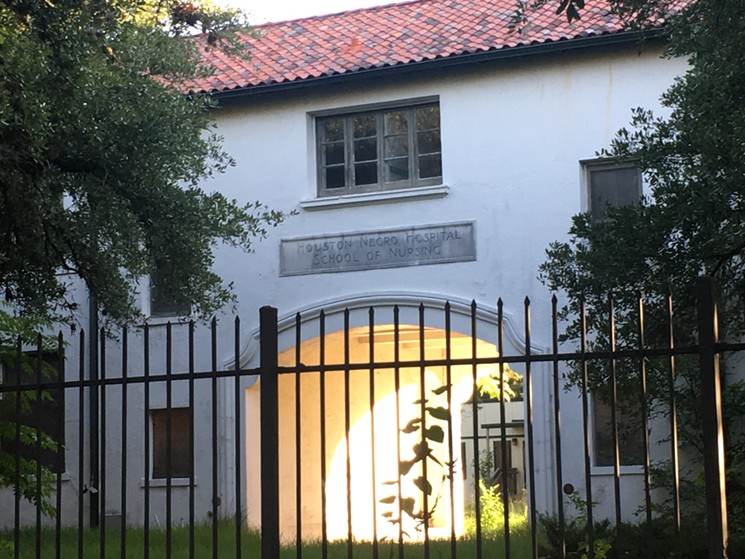
Houston Negro Hospital School of Nursing was established in 1931, and is now part of the campus of Riverside General Hospital.
Photo by G. Paris Johnson
However, Mahmood's organization is one of seven in Houston who seem to share the vision of wanting to preserve Third Ward's history, spirit and pride and are actively engaged in holistic conversations on ways to thwart any of these problems that may develop as new neighbors move in and new businesses pop up.
Many of the Third Ward residents we talked to say they believe the politicians who are charged with representing the members of the community are simply not doing enough to pull their strengths together to fight against what they fear could culturally wipe out generations of families. Many are no longer fooled by the color of their local politicians' skin and demand answers; the toughest question they asked is, “What will happen to us?”
"We tell people when they decide to move into Third Ward that they are in fact moving into Third Ward and that they need to get to know their neighbors who have been there and plan on staying there because that is their home too," insists Mahmoud.
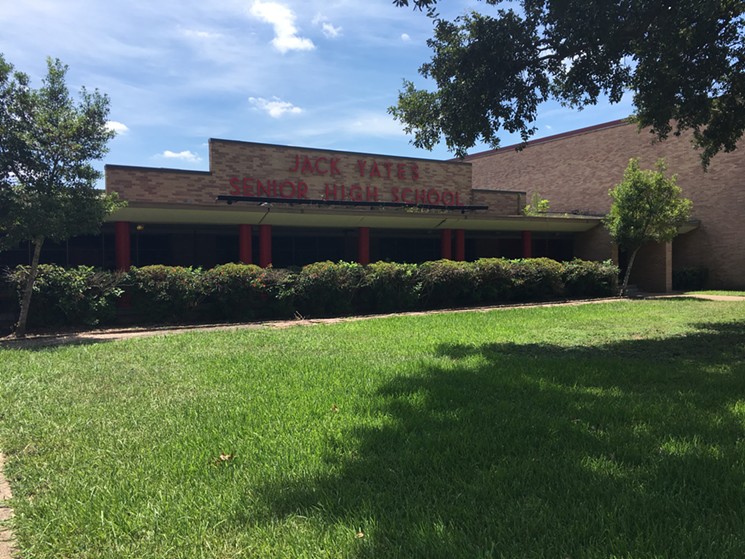
Jack Yates Senior High School, named after former slave John Henry Yates and founded in 1926.
Photo by G. Paris Johnson
Says Dr. Kenneth Davis, Ed.D, principal of the school named after
“All of the feeder pattern schools — Cullen Middle School, Jack Yates High School, Sterling High School and Dowling Middle School — it’s there; the gentrification is happening in these areas," Davis continues. "I'm concerned that Third Ward may eventually be phased out and renamed just as Fourth Ward [was].”
Several professional African-Americans who desire to keep the neighborhood black feel it necessary to buy the land of torn-down and abandoned homes at extremely low prices and then build their homes in place of what once was. They feel torn because in doing so, they feel as though they are contributing to the ongoing problem.
“Over 600 of our kids are supposed to be zoned to Yates [but] go to Bellaire High School and Lamar High School because of Houston Independent School District's 'open enrollment' policy," notes Davis." This policy allows parents/guardians to enroll their students
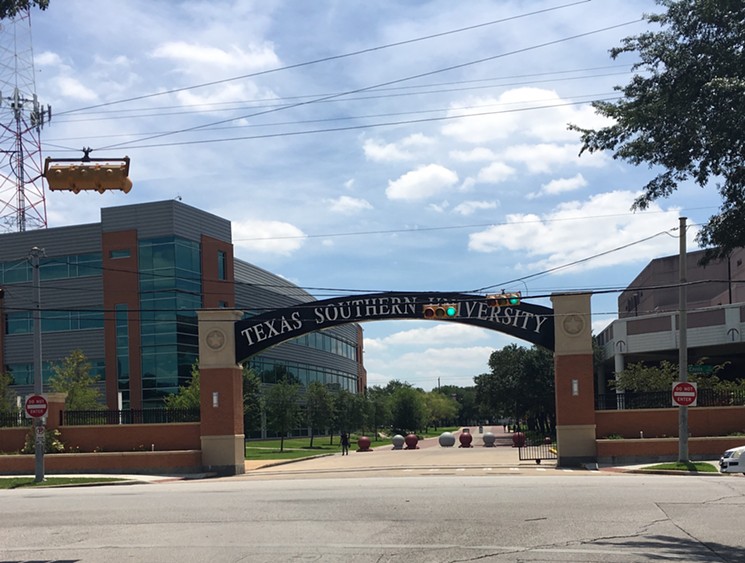
Texas Southern University, established in 1927, formerly known as Houston Colored Junior College.
Photo by G. Paris Johnson
Dr. Davis calls the essence that has kept the Third Ward community afloat, embodied in groups like the alumni associations of Jack Yates and TSU, the “Flavor of the Faithful.”
"This flavor is what makes Third Ward 'The Historic Third Ward,'" he says. "It’s what has kept the community alive in the roughest of times."
Black people have often been called the most resilient of all races because of the way in which they are able to thrive and survive amid the harshest conditions due to continued disenfranchisement. Davis cautions those who are so quick to sell and walk
"We took it for granted, and now we are fighting for what was ours in the first place,” he says.

